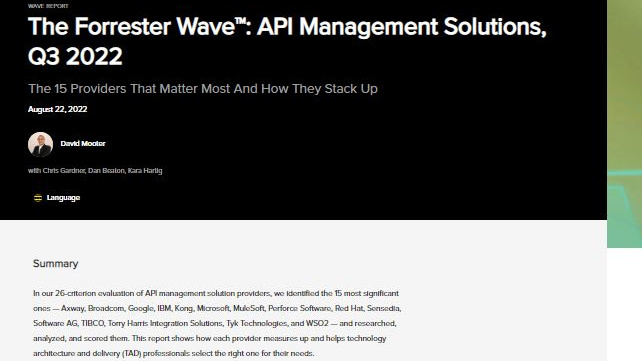ERP transformation timeframes cut from years to weeks
Businesses are no longer questioning the value of digitisation, SAP execs say, but the c suite is still holding things back


The timeframe for large-scale enterprise resource planning (ERP) transformations has been slashed from months, and in some cases years, to just a matter of weeks.
Such programmes of change might be multi-staged and traditionally required intense planning and execution that takes place over up to a decade. However, a combination of conditions including the aftermath of COVID-19 has sparked businesses into moving fast.
RELATED RESOURCE

“We’ve got examples of six weeks; of going from as-is to there in six weeks,” said SAP customer success lead and member of the SAP SE Executive, Scott Russell. “Now that is incredibly rapid.”
Speaking at SAP Sapphire, the Hague, Russell highlighted how the market has shifted considerably as soon as over the last 18 months, adding this movement is being driven by small and medium-sized businesses (SMBs).
Many customers of SAP’s newly launched RISE platform, for example, are mid-sized firms looking to implement rapid ERP transformations to keep up with the competition.
“[Businesses] are willing now to just move,” Russell continued. “Actually, I’ve seen programmes where they haven’t perfectly defined everything, but they’re moving and they will be agile enough to adapt as they go because they know that to wait is to give their competitors an advantage that they’re no longer prepared to do.”
“We just don’t see ERP long-term implementations anymore. The market doesn’t want to implement that way. We certainly don’t want to; we want to help them get time-to-value even if it’s in a multi-step journey.”
Sign up today and you will receive a free copy of our Future Focus 2025 report - the leading guidance on AI, cybersecurity and other IT challenges as per 700+ senior executives
He echoed comments delivered by SAP president EMEA North, Rohit Nagarajan, who stressed in his keynote address that nobody was questioning whether or not transformation was necessary anymore.
Scott reinforced this by suggesting the biggest factor driving decisions right now is the fear of standing still. At the c-level, especially, executives are fearful of not changing, although are being held back by the barriers of culture and convention, particularly the established processes that already exist within their businesses.
Pushed further, Russell said the biggest concerns among its customers was, indeed, their CEOs and c-level executives dragging their feet. That behavioural and cultural change, specifically, was something they needed to overcome, in order to commit to and appreciate the benefit of undergoing fast-paced digital transformation projects.

Keumars Afifi-Sabet is a writer and editor that specialises in public sector, cyber security, and cloud computing. He first joined ITPro as a staff writer in April 2018 and eventually became its Features Editor. Although a regular contributor to other tech sites in the past, these days you will find Keumars on LiveScience, where he runs its Technology section.
-
 Morgan Stanley research warns AI is having a huge impact on jobs
Morgan Stanley research warns AI is having a huge impact on jobsNews Analysis of five sectors highlights an "early warning sign" of AI’s impact on jobs
-
 AI is “forcing a fundamental shift” in data privacy and governance
AI is “forcing a fundamental shift” in data privacy and governanceNews Organizations are working to define and establish the governance structures they need to manage AI responsibly at scale – and budgets are going up
-
 UK firms are pouring money into AI, but they won’t see a return on investment unless they address these key issues
UK firms are pouring money into AI, but they won’t see a return on investment unless they address these key issuesNews An SAP report projects increased AI investment, but cautions that too many organizations are taking a fragmented approach
-
 Optimise CX and accelerate business growth through your voice network
Optimise CX and accelerate business growth through your voice networkwhitepaper Protecting the human experience in a digital world
-
 Enterprises are doubling down on IT optimization strategies – and it’s delivering huge financial returns
Enterprises are doubling down on IT optimization strategies – and it’s delivering huge financial returnsNews Organizations that have cracked IT cost optimization and innovation reap the rewards both financially and in terms of time to market.
-
 IDC InfoBrief: Sustainability doesn’t need to be all stick and no carrot
IDC InfoBrief: Sustainability doesn’t need to be all stick and no carrotwhitepaper CIOs are facing two conflicting strategic imperatives
-
 How to empower employees to accelerate emissions reduction
How to empower employees to accelerate emissions reductionin depth With ICT accounting for as much as 3% of global carbon emissions, the same as aviation, the industry needs to increase emissions reduction
-
 The Forrester Wave™: API management solutions
The Forrester Wave™: API management solutionsWhitepaper The 15 providers that matter the most and how they stack up
-
 How Crew Clothing went mobile to turn around a struggling business
How Crew Clothing went mobile to turn around a struggling businessCase Study Mobile sales tech unleashed a tide of change, buoying further growth across the UK coast-inspired casualwear chain
-
 Former TSB CIO fined £81,000 for botched IT migration
Former TSB CIO fined £81,000 for botched IT migrationNews It’s the first penalty imposed on an individual involved in the infamous migration project